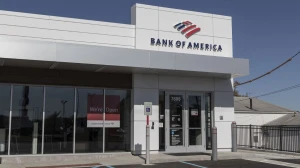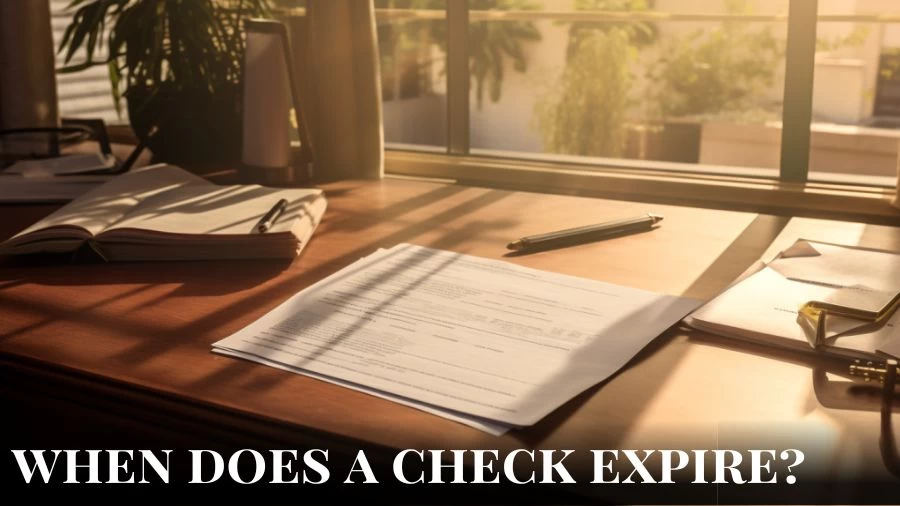
When Does a Check Expire? How Long is a Check Valid?
Checks typically expire after six months, but U.S. Treasury checks are valid for one year, and traveler's checks and domestic U.S. Postal Service money orders do not have expiration dates.
by Sangamithra
Published Sep 01, 2023 | Updated Sep 01, 2023 | 📖 6 min read
When Does a Check Expire?
A check typically expires after six months from the date it was issued, as mandated by banking regulations. Beyond this period, banks are not legally obligated to cash the check. However, they may choose to do so at their discretion, or they might contact the account holder for approval.
If a check is presented for payment after its expiration date, there's a risk that it will be declined, potentially resulting in fees for the depositor. While some checks may have text stating they become void after 90 days, the six-month rule applies universally, irrespective of any printed information.
Exceptions include U.S. Treasury checks, which remain valid for one year, and traveler’s checks and domestic U.S. Postal Service money orders, which do not expire. To avoid complications, it's advisable to promptly deposit checks when received and to contact the issuer if you encounter an old, uncashed check.
How Long is a Check Valid?
Checks typically have a validity period of up to six months, according to banking regulations. After this six-month window, it's at the discretion of the bank whether they will cash the check or not. However, some checks, such as those issued by the U.S. Treasury, remain valid for up to one year.
Personal checks and company-printed checks share the same expiration rules, regardless of any printed statements on the check suggesting shorter expiration periods. Traveler’s checks and domestic U.S. Postal Service money orders are exceptions, as they do not have expiration dates.
Do Checks Have an Expiration Date?
No, checks do not expire universally. The expiration of a check depends on its type. Personal checks typically remain valid for 6 months (180 days), while U.S. Treasury checks are good for one year. State and local government checks may vary by state but often have a 6-month to one-year validity period. Cashier's checks may or may not have specified expiration dates, usually indicated as "void after X days."
Money orders depend on issuer and state regulations, with some charging fees after 1-3 years. However, USPS money orders do not expire. Traveler's checks, on the other hand, do not have expiration dates as long as the issuing bank is still in operation. It's essential to be aware of the specific rules governing the type of check you have to ensure it remains valid for use.
What Happens if You Deposit an Expired Check?
If you deposit an expired check, you run the risk of encountering several potential complications. While some banks may choose to honor the check, many have the discretion to reject it. If the issuing bank refuses the expired check, it could lead to the funds being withdrawn from your account, potentially resulting in overdraft fees.
Moreover, if the account from which the check was drawn lacks sufficient funds or has been closed, the check may bounce, leaving you responsible for covering the check amount and any associated fees. To avoid these issues, it's crucial to be vigilant about the expiration dates on checks and to deposit or cash them promptly.
Do Checks Expire if Not Cashed?
Yes, checks can expire if they are not cashed within a certain timeframe. Personal, business, and payroll checks are typically valid for 6 months (180 days) from the date they are issued. However, the expiration rules can vary depending on the type of check. U.S. Treasury checks, for example, are usually valid for one year, while state or local government checks may follow state-specific expiration regulations, often ranging from 6 months to a year.
Cashier's checks may or may not have set expiration dates, and money orders depend on the policies of the issuer. Traveler's checks, though, do not expire as long as the issuing bank remains in operation. To avoid any issues or potential fees, it's advisable to cash or deposit a check promptly, and if you have concerns about an uncashed check, it's best to contact your bank or the issuer for guidance.
When Does a Cashier's Check Expire?
A Cashier's Check expiration date can vary and is not always explicitly specified. While some Cashier's Checks may not have a set expiration date, others might include a "void after X days" disclaimer. These checks are considered official checks and are typically backed by the issuing bank, theoretically remaining valid as long as the bank is in operation.
However, to ensure the successful processing of a Cashier's Check, it's crucial to cash or deposit it before any specified expiration date mentioned, if applicable, or to inquire with the issuing bank for clarification on their policies regarding expired checks.
When Does a Background Check Expire?
A background check's expiration largely depends on the type of information it contains and its relevance to the individual's current status. While background checks themselves do not technically "expire," certain components within them may become outdated or less relevant over time.
For example, criminal background checks may require regular updates due to potential changes in an individual's criminal record, and driving record checks may need to be refreshed to ensure compliance for employees who operate company vehicles.
To mitigate risks associated with outdated information, it is often advisable for employers to conduct background checks at regular intervals, typically every two to five years, to ensure the continued safety and integrity of their workforce and business operations.
When Does a Personal Check Expire?
A personal check typically expires after 6 months (180 days) from the date it was issued. However, it's important to note that some personal checks may have a "void after X days" notation printed on them, but most banks will still honor them for up to 180 days.
The expiration date serves as a guideline to encourage prompt deposit or cashing of the check to avoid potential complications such as account number changes or the check writer spending the funds elsewhere, which could result in returned check fees. Therefore, if you receive a personal check, it's advisable to deposit or cash it as soon as feasible to ensure it remains valid.
When Does a Check Expire - FAQs
1. When does a personal check expire?
Personal checks typically expire after 6 months (180 days) from the date they were issued.
2. Can I still deposit a check after its expiration date?
Banks may choose to honor expired checks at their discretion, but it's best to deposit or cash them promptly to avoid complications.
3. What happens if I deposit an expired check?
Depositing an expired check can result in the check being rejected, potential overdraft fees, or bounced checks if the issuer's account lacks funds.
4. Do all checks have the same expiration period?
No, the expiration period varies by check type. For instance, U.S. Treasury checks are valid for one year, while personal checks are typically good for 6 months.
5. Are there checks that never expire?
Yes, traveler's checks do not have expiration dates as long as the issuing bank remains in operation.




